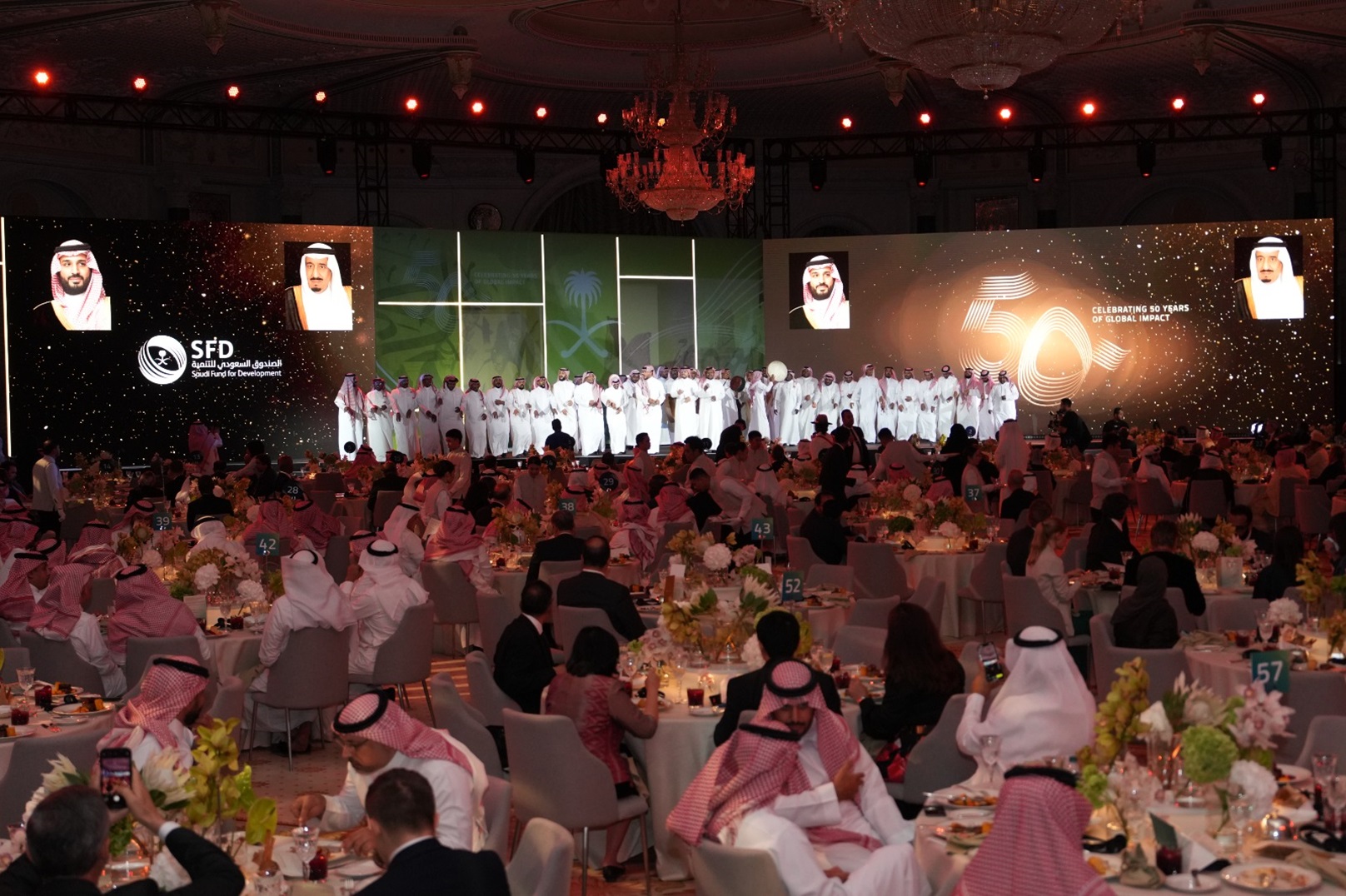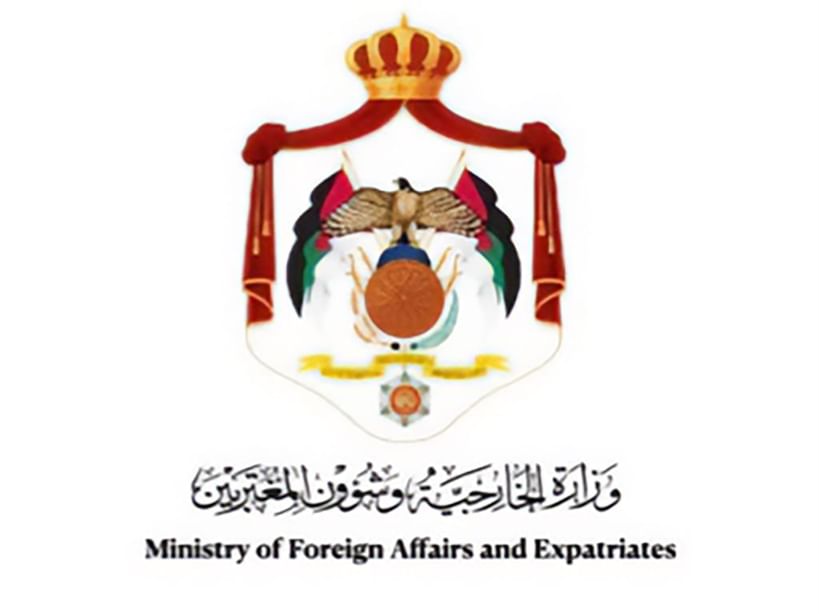The Saudi Fund for Development (SFD) celebrated its 50th anniversary in Riyadh today, under
the theme “50 Years of Global Impact.”The event brought together key development partners to
reflect on the SFD’s significant contributions to sustainable development worldwide. Over the
past five decades, the SFD has allocated over $20 billion, financing more than 800 development
projects and programs in vital sectors, including social infrastructure (education, healthcare,
water and sewage, and housing and urban development), communication and transportation
(roads, railways, airports and seaports), energy, agriculture, mining and industry, and others.
Since its inception in 1974, the SFD has been the international development arm of the Kingdom
of Saudi Arabia and has provided critical support to over 100 developing nations around the
world. With a strong focus on supporting countries to achieve the Sustainable Development
Goals (SDGs), the SFD has played a pivotal role in driving sustainable development in Least
Developed Countries (LDCs) and Small Island Developing States (SIDS).
During the event, SFD Chairman H.E. Ahmed Al-Khateeb emphasized the importance of
collaboration in driving global development. He highlighted that SFD’s success is deeply rooted
in its partnerships, with 27 development projects and programs in 23 developing countries in
2023 co-financed with other funders. He also underscored the need to forge new partnerships and
strengthen existing ones to create a world where every individual has the opportunity to reach
their full potential.
Reflecting on this significant milestone, the SFD CEO , Mr. Sultan bin Abdulrahman Al-
Marshad, stated: “As we celebrate five decades of impactful work, we are committed, now more
than ever, to supporting developing countries on their journey to economic self-reliance and
resilience. Our goal is to ensure that all children can go to school, that education is not a
privilege but something every child should have access to, and that families have access to
healthcare and basic vital services. Equally, we focus on critical infrastructure development, like
building roads and enhancing airports and sea ports, so that countries can thrive and engage in
economic activities and trade. This work is not just about financing; it’s about tangibly
improving lives, creating opportunities, empowering communities, and building a more
prosperous future.”
On the sidelines of the 50 th Anniversary Gala, the SFD and the Asian Development Bank (ADB)
signed a new $25 million agreement to co-finance a renewable energy development project in the
Solomon Islands. This marks the first project for SFD in the Solomon Islands. The primary aim
of the project is to develop renewable energy infrastructure, reduce dependency on fossil fuels,
and promote sustainable development in the region.
This agreement builds on SFD’50 years of transformative impact through development projects
that have spanned Africa, Asia and the Pacific, Latin America and the Caribbean, and Eastern
Europe.
This includes key projects such as the Metolong Dam in Lesotho, which received $25 million in
funding and now provides potable water to 280,000 people, enhancing water security and public
hygiene and health in the region. This is just one of the 433 projects across Africa, with a total
funding of $11.5 billion, which focuses on critical areas such as infrastructure and water security.
In Asia, the SFD has funded 271 projects with a total funding of $7.8 billion. One notable
example is the SFD’s contribution to the Mohmand Dam Hydropower Project in Pakistan, which
has an overall project cost of $240 million. The projects contributes to the country’s energy
security and flood resilience by generating 800 megawatts of renewable energy and storing 1.6
million cubic meters of water.
In Latin America and the Caribbean, the SFD has financed 21 projects, totaling $951 million
USD. This includes rehabilitating the Water and Sewage System in Havana, Cuba, where the
SFD has allocated $35 million to enhance public infrastructure. Another significant initiative is
the rebuilding of St. Jude Hospital in Saint Lucia, supported by $75 million funding, which will
contribute to providing high-quality health services to citizens in a modern and sophisticated
facility and providing sufficient medical supplies and equipment to support the effective
operation of the hospital.
In Eastern Europe, the SFD has contributed to 14 projects with a total investment of $303
million. A key initiative is the construction of the Tirana-Elbasan-Chokos-Chalf-Ploce Road,
where the SFD provided $73.8 million to rebuild essential roads and bridges, thereby boosting
regional economic activities.
During the celebration, esteemed speakers shared insights on the SFD’s pivotal role in global
development, and in championing critical partnerships and collective action and response.
Keynote speakers included:
HRH Prince Turki bin Faisal Al Saud, Founder and Trustee of the King Faisal
Foundation
H.E. Ahmed bin Aqeel Al-Khateeb, Chairman of the Board of Directors of the SFD
H.E. Akinwumi Adesina, President of the African Development Bank Group
H.E. Muhammad Al Jasser, Chairman of the Islamic Development Bank
These global development leaders emphasized the SFD’s commitment to fostering sustainable
growth in countries and communities with the most pressing developmental needs. The gala was attended by more than 500 people, including ministers, heads of regional and international organizations, ambassadors, representatives of the United and other distinguished
guests. As the SFD looks to the future, it reaffirms its mission and pledge to drive international
development efforts, on behalf of the Kingdom of Saudi Arabia, and to contribute to global
stability, social progress, and economic prosperity for future generations.

 World3 years ago
World3 years ago
 World2 years ago
World2 years ago
 Entertainment7 years ago
Entertainment7 years ago
 World7 years ago
World7 years ago
 Entertainment7 years ago
Entertainment7 years ago
 Business9 months ago
Business9 months ago





